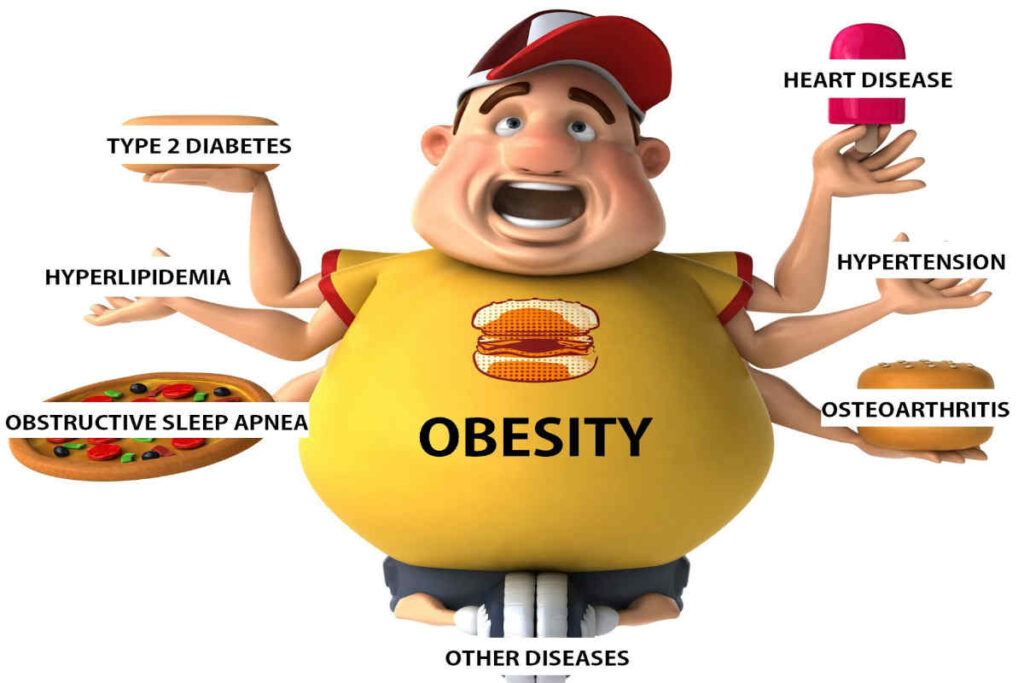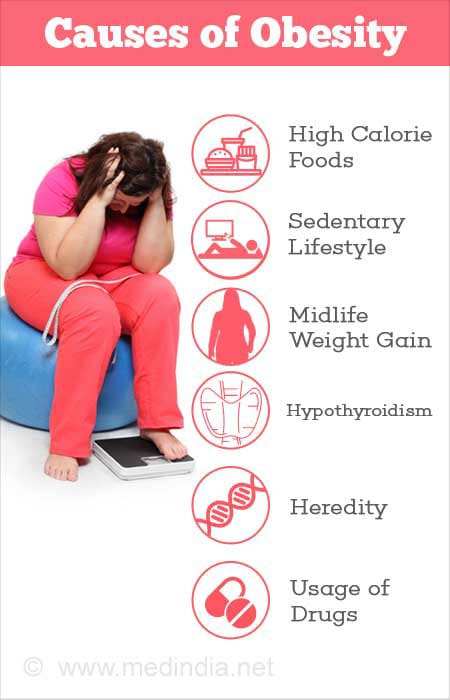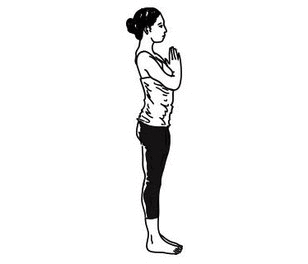In general, obesity is overweight indicates a weight greater than what is healthy. Obesity is a chronic condition defined by an excess amount of body fat. A certain amount of body fat is necessary for storing energy, heat insulation, shock absorption, and other functions.

Obesity is not because it runs in the family,
It is because no one runs in the family.
Obesity is not just a cosmetic consideration. It is a chronic medical disease that can lead to diabetes, high blood pressure, obesity-associated cardiovascular disease such as heart disease, and other chronic illnesses.
Obesity is not because it runs in the family,
It is because no one runs in the family.
Obesity is not just a cosmetic consideration. It is a chronic medical disease that can lead to diabetes, high blood pressure, obesity-associated cardiovascular disease such as heart disease, and other chronic illnesses.

The older you get , the tougher it is to lose weight , because by then your body and your fat are really good friends.
1- Physical inactivity. Sedentary people burn fewer calories than people who are active. Physical inactivity or being sedentary is when you don’t move your body for longer periods of time. Being physically active doesn’t mean you need to join a gym or run a marathon.
Being inactive can lead to fatty material building up in your arteries. If the arteries that carry the blood to your heart get damaged and clogged, it can lead to a heart attack. If this happens in the arteries that carry the blood to the brain it can lead to a stroke.
2- Overeating. Overeating leads to weight gain, especially if the diet is high in fat. Foods high in fat or sugar (for example, fast food, fried food, and sweets) have high energy density (foods that have a lot of calories in a small amount of food).
3- Genetics. A person is more likely to develop obesity if one or both parents are obese. Genetics also affects hormones involved in fat regulation. LEPTIN and GHRELIN both are “hunger hormones “. Leptin is a hormone, made by fat cells, that decreases your appetite. Ghrelin is a hormone that increases appetite. Both hormones play a major role in body weight.
For example, one genetic cause of obesity is leptin deficiency. Leptin is a hormone produced in fat cells and in the placenta. Leptin controls weight by signaling the brain to eat less when body fat stores are too high. If, for some reason, the body cannot produce enough leptin or leptin cannot signal the brain to eat less, this control is lost, and obesity occurs.
4- Medications. Medications associated with weight gain include certain antidepressants, anticonvulsants (medications used in controlling seizures and, some diabetes medications, certain hormones such as oral contraceptives, and most corticosteroids. Some high blood pressure medications and antihistamines cause weight gain.
5- Psychological factors. For some people, emotions influence eating habits. Many people eat excessively in response to emotions such as boredom, sadness, stress, or anger.
6- Diseases such as hypothyroidism, insulin resistance, polycystic ovary syndrome, and Cushing’s syndrome are also contributors to obesity.
7- Social issues: There is a link between social issues and obesity. Lack of money to purchase healthy foods or lack of safe places to walk or exercise can increase the risk of obesity.
RISK FACTORS ASSOCIATED WITH OBESITY :
Obesity is not just a cosmetic consideration; it is harmful to one’s health as it is a risk factor for many conditions. Obesity also increases the risk of developing a number of chronic diseases, including the following:
Insulin resistance, type 2 diabetes [adult onset], high blood pressure, high cholesterol, stroke, heart attack, congestive heart failure, cancer, gout, osteoarthritis, sleep apnea, etc.
MANAGEMENT [ DIET THERAPY, NATUROPATHIC TREATMENT AND YOGA ]:
DIET THERAPY:
- wake as early as possible and drink 3 – 4 glasses of normal water.
- 7 : 00 am — methi water ¼ glass / aloevera + giloy= 3 tspn
- 9 : 30 am— dalia / upama / vagi. Salad = 1 plate +karele ka juice ½ glass / methi sprouts 50 gm
- 11 : 30 am—roti—2 + green veg. 2 bowls + 100 gm papaya + butter milk 1 glass ( salad 1 plate ½ an hour before the meal if possible )
- 2 : 00 pm – louki juice 1 glass / fruits 150 gm / coconut water ½ glass / veg. Salad 1 plate .
- 5: 00 pm – 2 whole-grain biscuits + 1 cup green tea.
- roti -1 +green boiled veg +green veg soup 1glass +methi sprout 30gm
- Half an hour before sleep take 1 cup of milk [cow’s milk ].
NATUROPATHIC TREATMENTS:
- Hot fomentation -5 min.
- Mud pack over abdomen – 30 min.
- Enema
- Hot and cold hip bath- 15:5 min.
- Steam /sun / sauna bath 10 min.
- Hotfoot bath
- Hot arm and foot bath
- Alternate hot and cold compress over abdomen
- Hot hip bath
YOGA THERAPY:
Surya Namaskar or Sun Salutation is a sequence of 12 powerful yoga poses. Besides being a great cardiovascular workout, Surya Namaskar is also known to have an immensely positive impact on the body and mind.
Surya Namaskar is best done early morning on an empty stomach. Each round of Sun Salutation consists of two sets, and each set is composed of 12 yoga poses. You might find several versions on how to practice Sun Salutation.

POWER YOGA:
Power yoga is a general term used to describe a vigorous, fitness-based approach to vinyasa-style yoga. Though many consider power yoga to be superficial “gym yoga,” this style of yoga practice was originally closely modeled on the Ashtanga method.
Power yoga enthusiasts say it enhances stamina, flexibility, posture, and mental focus. Like all physical activities, it also relieves tension and releases toxins through sweat. Because it is rigorous, it burns more calories than most traditional forms of yoga and therefore can help with weight loss.
PRANAYAMA:
Pranayama which increases BMR are – suryabhedi pranayama, bhastrika pranayama.
NOTE :
- A brisk walk or walk for at least 30 -30 minutes, empty stomach in the morning, and after dinner light walk.
- after lunch rest for a while and after dinner light walk for a mile.
- avoid sweets/oily and fatty food items / packed food items.
- avoid late night working.
- be active





[…] obesity and excess weight […]
Please read the above article, if you are facing the back pain problems.
It is remarkable, rather amusing piece
Unequivocally, ideal answer
Quite good topic
Actually. Prompt, where I can find more information on this question?